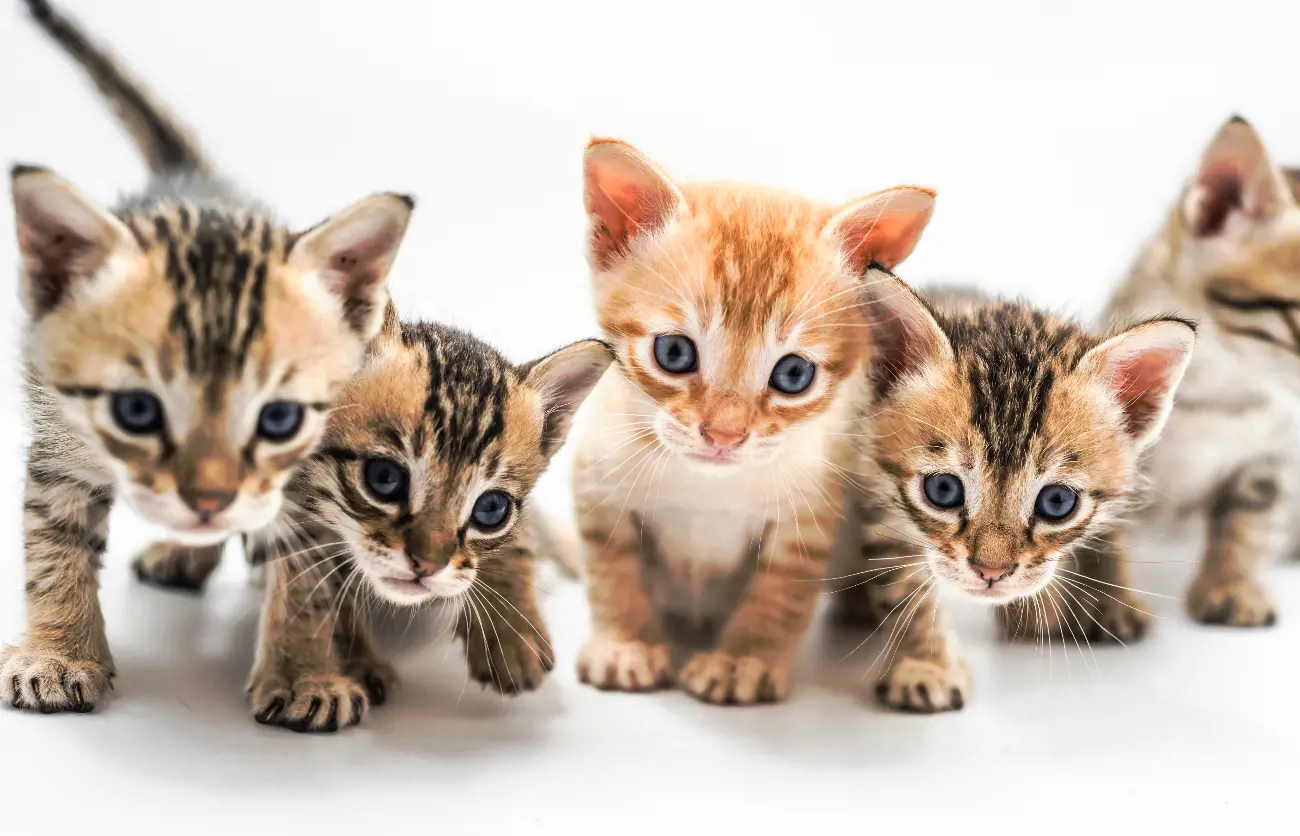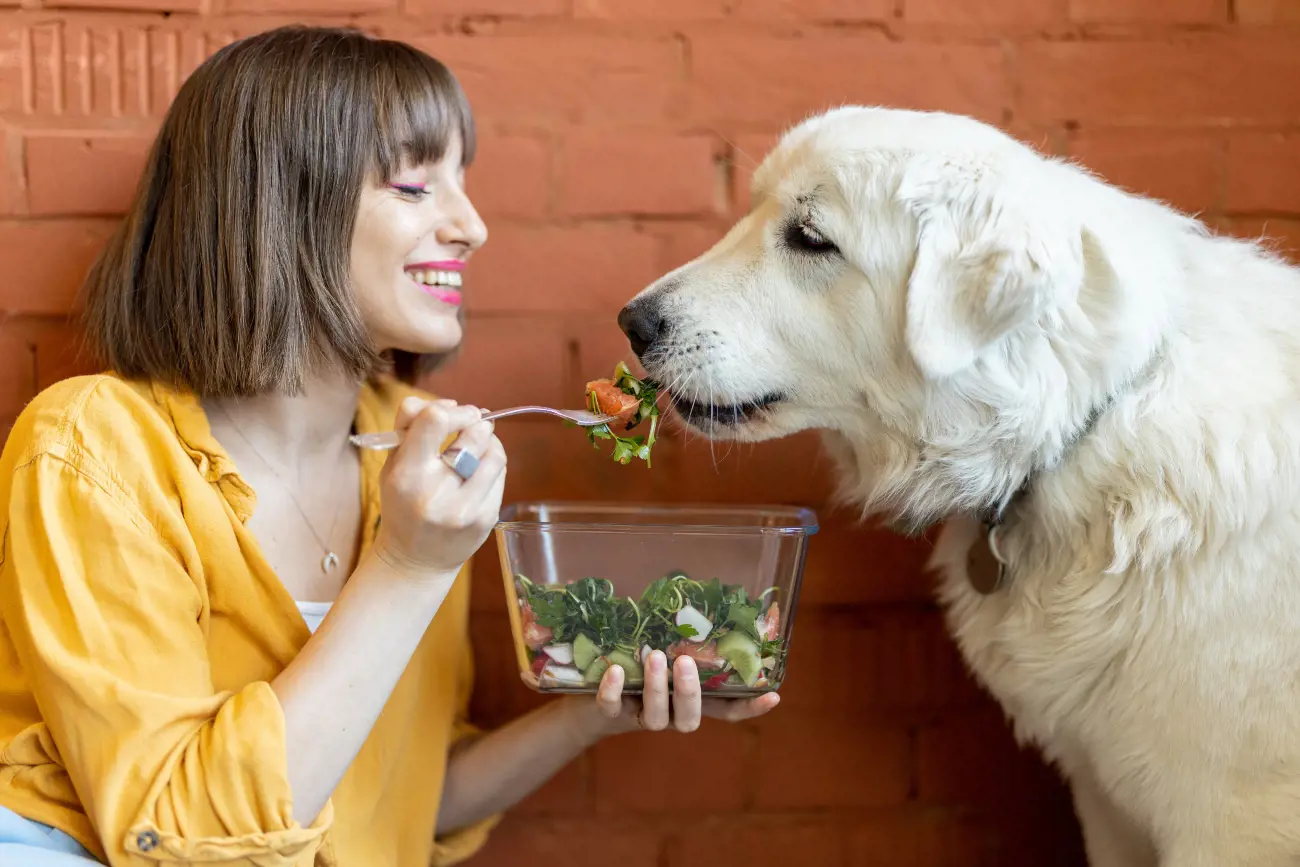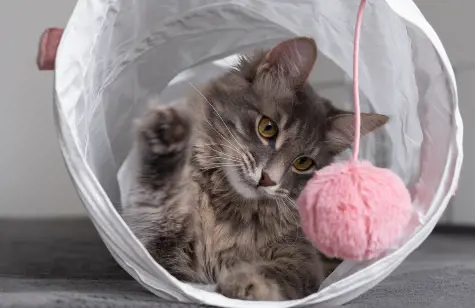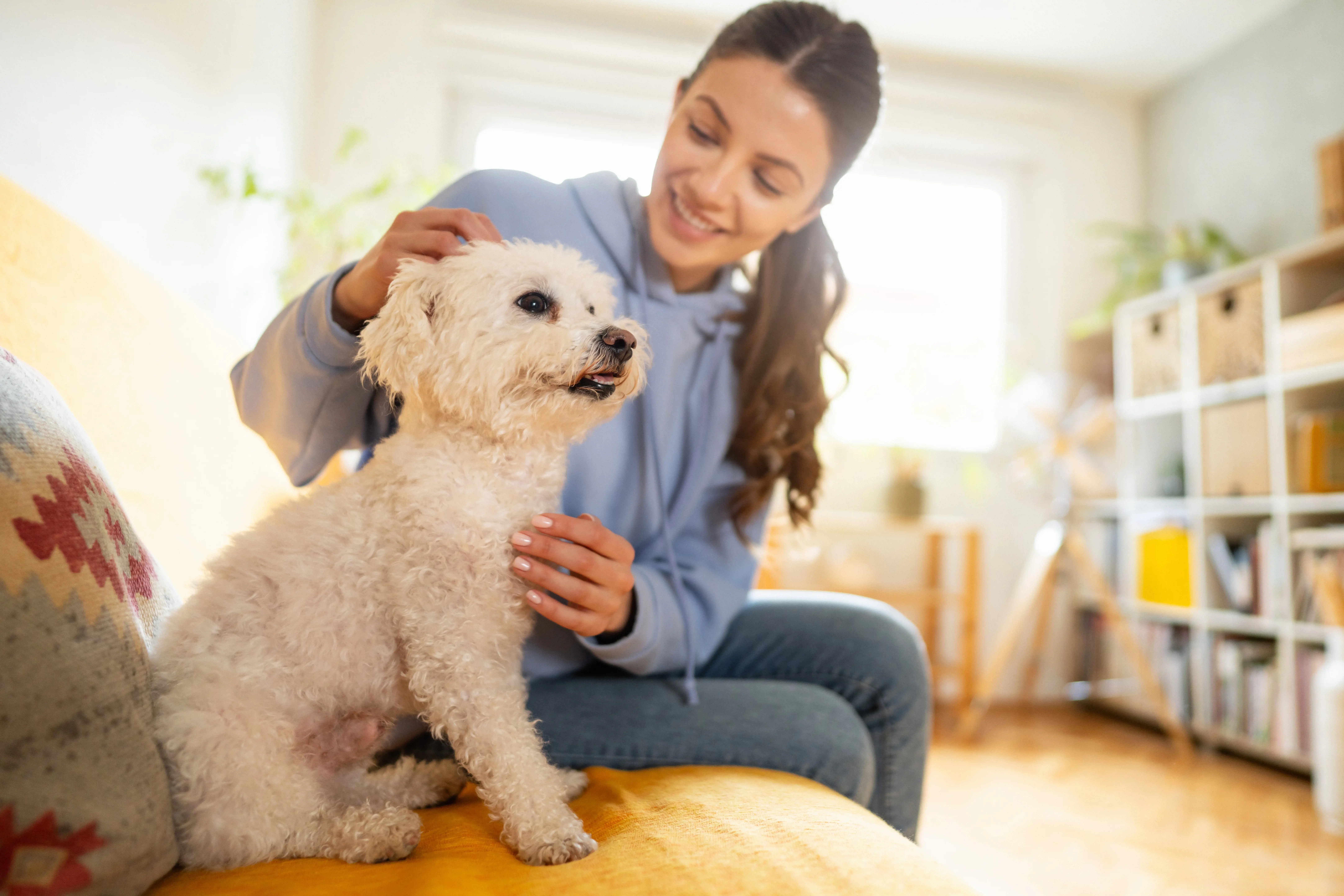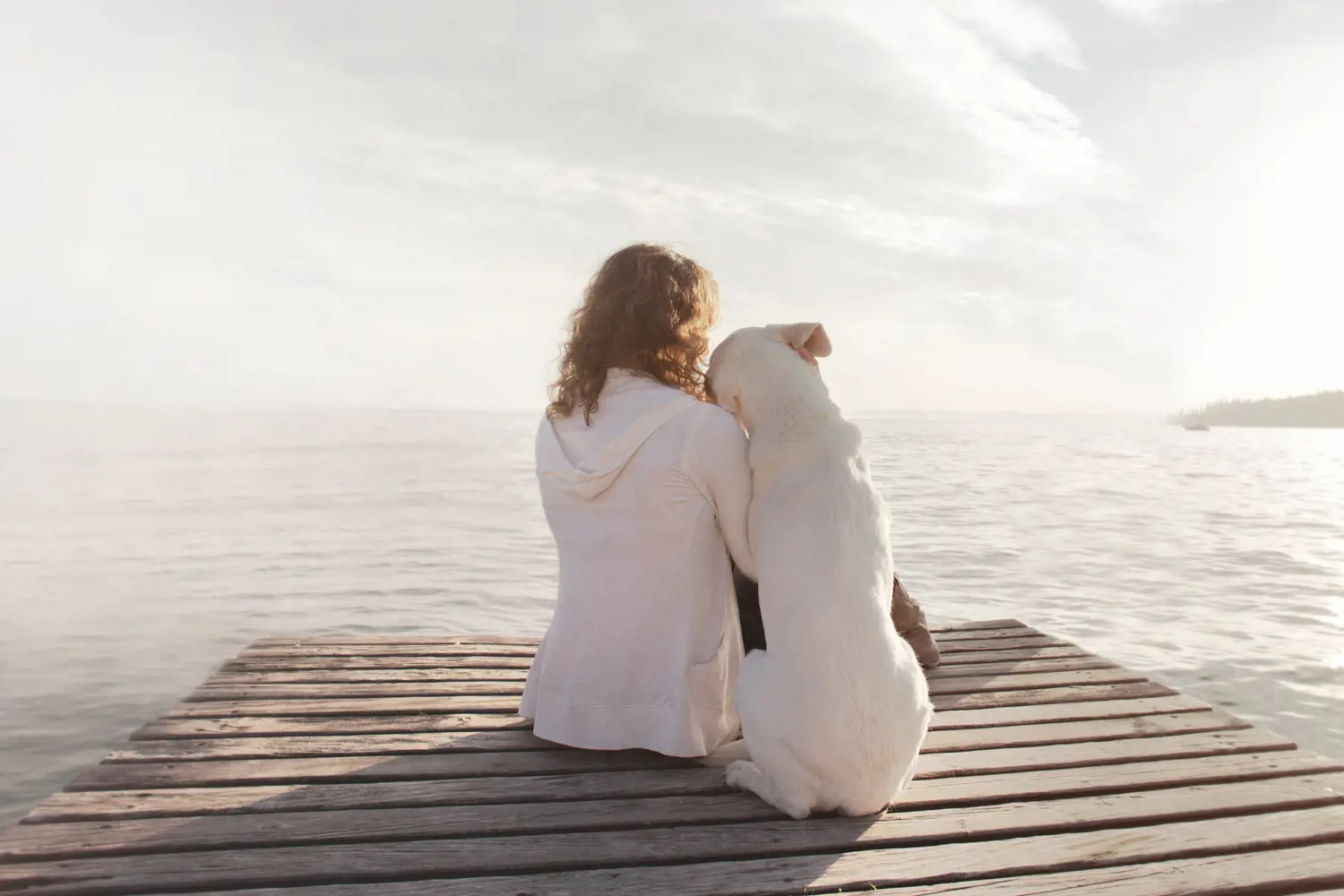Top questions pet owners ask their vet answered
1st November, 2019
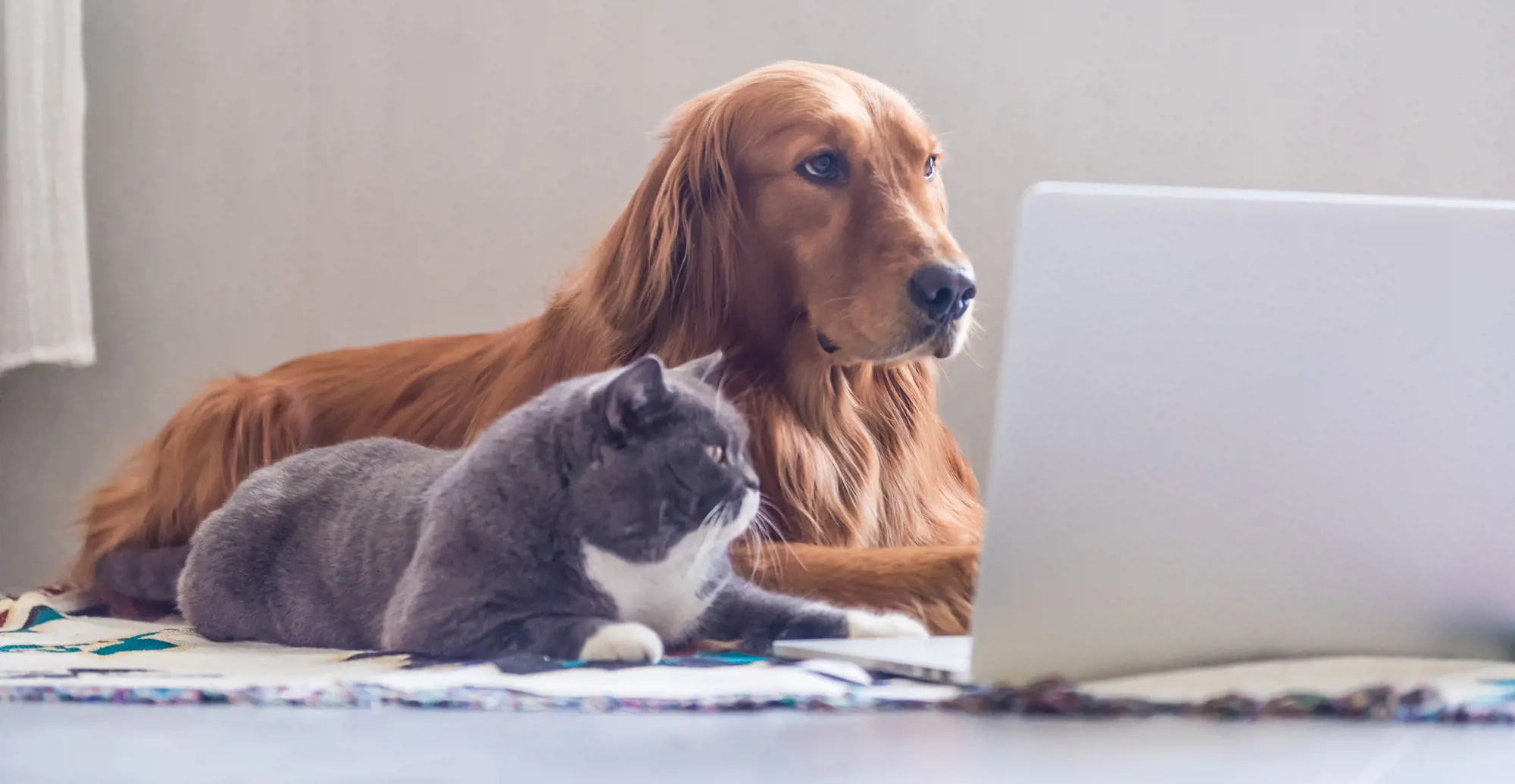
It’s tough being a pet owner. Our lovable furballs are central to our homes and families, so the thought of them being vulnerable to pain or illness can cause considerable worry and distress.
We can’t communicate with our cats and dogs the way we would with one another, so we’re left guessing about certain animal behaviours and needs.
You can’t foresee medical issues or accidents, so it’s vital to protect your four-legged friend with quality pet insurance, as vet bills can quickly stack up.
Purely Pets aren’t just specialists in reliable pet cover, we’re pet lovers, too.
We know how important your furry pal is to you, and we’re here to help, offering straightforward pet insurance suited to your needs and budget.
We’ve put our knowledge to good use and answered some of the most popular questions pet owners ask vets – take a look and deepen your understanding of your pooch or pussycat.
Frequently asked questions of pet owners answered

Whether you’re a feline fanatic or a dog lover, you’ll find plenty of useful information below. Combine this with quality pet insurance and frequent trips to a good vet, and you’ll be the perfect pet owner.
Cats
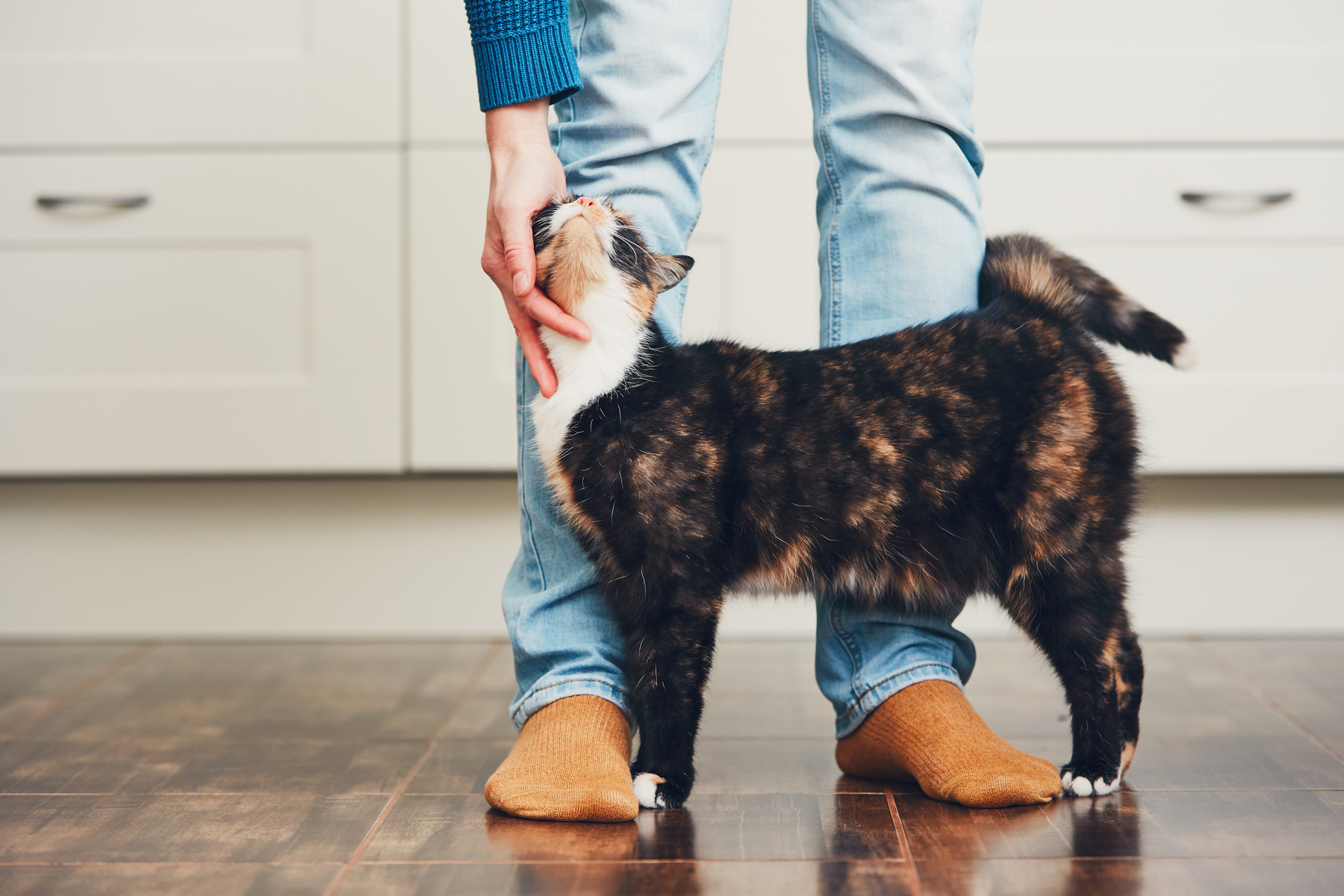
Aloof, clever, lovable and often fiercely independent, felines are fascinating pets – there’s never a dull day.
Let’s take a look at some of the most commonly asked cat questions:
Why does my cat knead?
Various blankets, cushions and rugs in your house have probably been kneaded by the resident pussycat – you may have been given the kneading treatment, too!
Often purring simultaneously, kneading cats move their paws back and forth, sometimes alternating between left and right limbs.
It’s theorised that felines knead simply because it feels enjoyable.
When nursing, kittens knead their mothers to stimulate milk stored in the mammary gland, in order to fill the teats.
So, when your cat kneads, they’re likely in a relaxed, contented state.
What should my cat eat?
Cats are natural carnivores, so to stay extra healthy they need animal protein in their diet.
Look for top-quality dry or wet commercial pet food, occasionally supplementing your feline’s diet with raw or cooked fresh meat, should you wish.
You can feed your cat fish, but not on a daily basis – too great a quantity of fatty acids could cause a vitamin E deficiency and trigger medical issues.
Avoid vegan diets at all costs, as this is not viable for prime kitty health.

What vaccinations does my cat need?
Once your kitten reaches 9 weeks of age, it’s essential to book them in for their first set of vaccinations.
When they reach 3 months of age, they’ll need a second booster set administered, to help strengthen their immune system.
Kitties shouldn’t step outside until the vaccination course is complete, and they’ll need annual boosters throughout their lifespan.
The RSPCA states that your cat’s vaccinations protect against the following:
- Feline Leukaemia Virus
- Cat flu (Feline Calicivirus and Feline Herpes Virus)
- Feline Infectious Enteritis
Why does my cat have hairballs so often?
It’s likely your pussycat’s hairballs are nothing to worry about. Cats lick their fur frequently as an act of grooming, during which some dead or loose hairs are swallowed.
Most of these are excreted, but some stay in your cat’s system, later coughed up as hairballs.
If you’re concerned about the frequency of your cat’s hairballs, get peace of mind and take your furry friend to the vet.
How often should I take my cat to the vet?
Starting from kittenhood, your feline should see the vet for vaccinations, making frequent visits to the vet until the course of vaccinations is complete.
They’ll need another check-up when they reach six months of age.
An adult pussycat needs to pop into the vet clinic once a year, at a minimum.
When they reach 7 years of age, they should resume seeing the vet once every six months.
Geriatric kitties should get checked every 3 months, as they’re more vulnerable to medical issues.
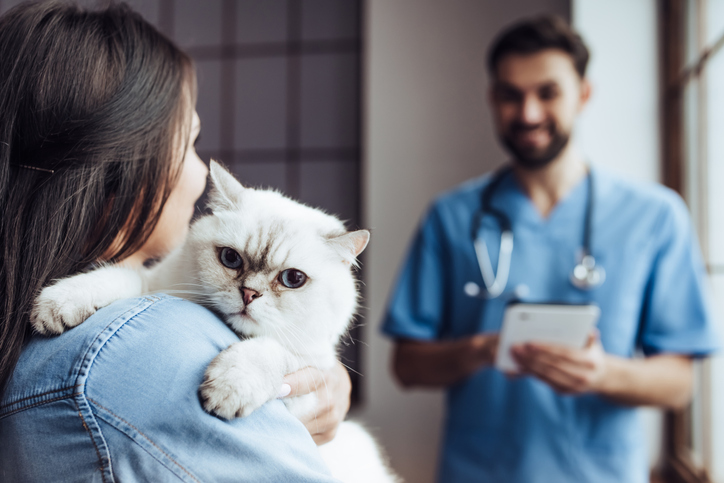
Why doesn’t my cat use the litter box?
There are various reasons why a cat may develop a sudden litter box aversion.
The litterbox might be cleaned too infrequently, causing your cat to avoid its unpleasant odours – felines have high standards!
Health issues such as urinary tract infections could be the culprit, which could turn into a life-threatening condition if left unchecked.
Make sure you have dependable pet insurance and take your cat to the vet if you’re concerned.
External stressors may be driving your kitty away from the litter box.
If the box is in an unfavourable location – a busy area of the house, perhaps – or there’s been a recent change in the household, your cat may be feeling distressed and so exhibits undesirable behaviour.
Likewise, if they are sorely lacking stimulation, this can also disrupt toileting patterns.
Why does my cat scratch the furniture?
It’s perfectly natural for kittens and cats to scratch their surroundings.
Scratching is a survival function, keeping your feline’s claws sharp for the hunt, while also leaving a personal scent signature, marking their territory.
Cats need to exercise their claws, and most enjoy the act. They may do it out of boredom, for fun or to self-soothe, so ensure they have an indoor scratching post as well as adequate exercise.
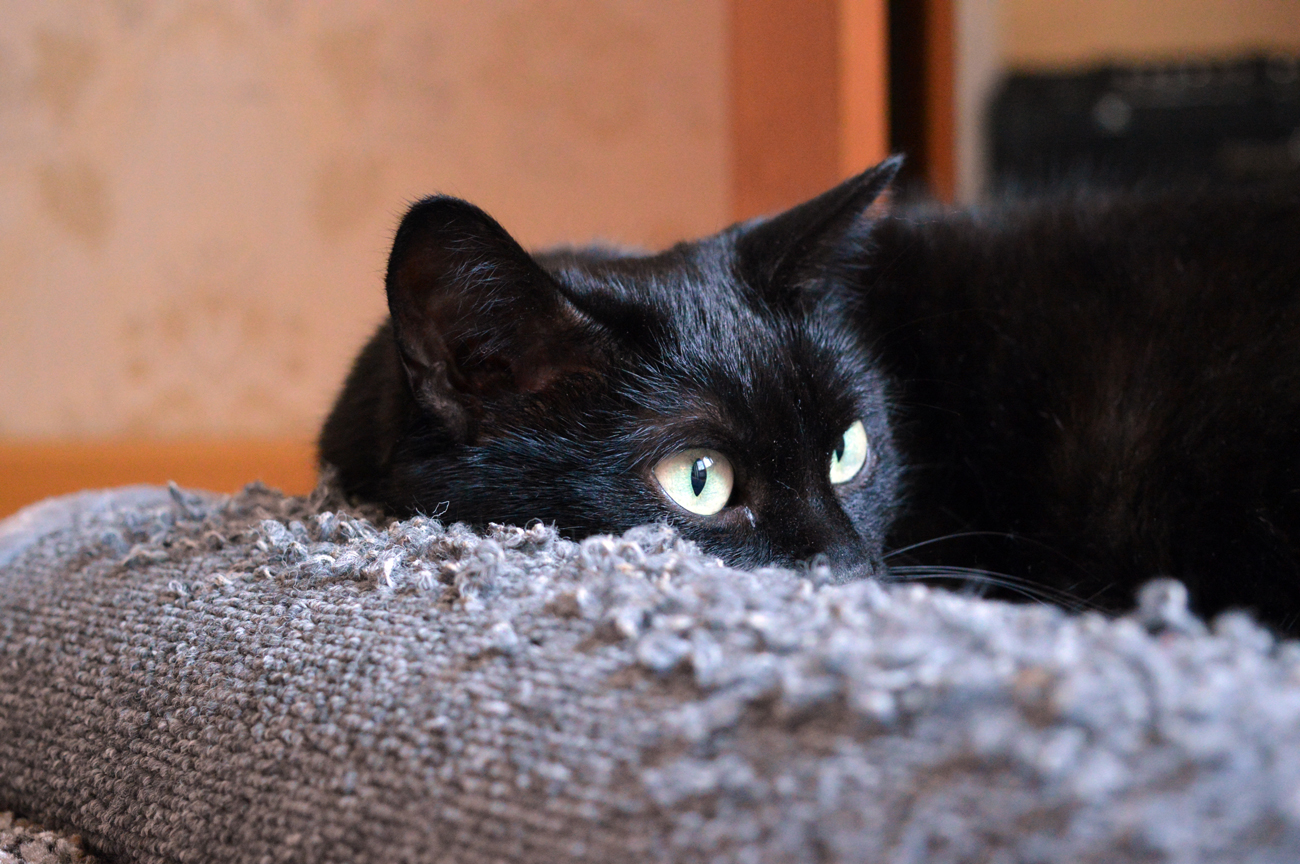
When should I get my cat spayed or neutered?
Felines sexually mature at around five months of age, so it’s suggested that neutering is carried out when they hit the four-month mark, after their initial course of vaccinations.
This helps avoid unwanted pregnancies, although vets may also recommend neutering at five or six months of age. Older cats can be safely neutered as well.
My cat has a lump – should I be concerned?
If you find a lump on your favourite furball, try not to panic.
It may be a benign lump – an excess cluster of cells.
On the other hand, it could be malignant. Malignant growths are cancerous, and tend to grow and spread at a faster rate than benign lumps.
Make the smart move and book your cat in for a check-up straightaway. Your vet can run the necessary tests and monitor the lump, keeping an eye on its progression.
Dogs
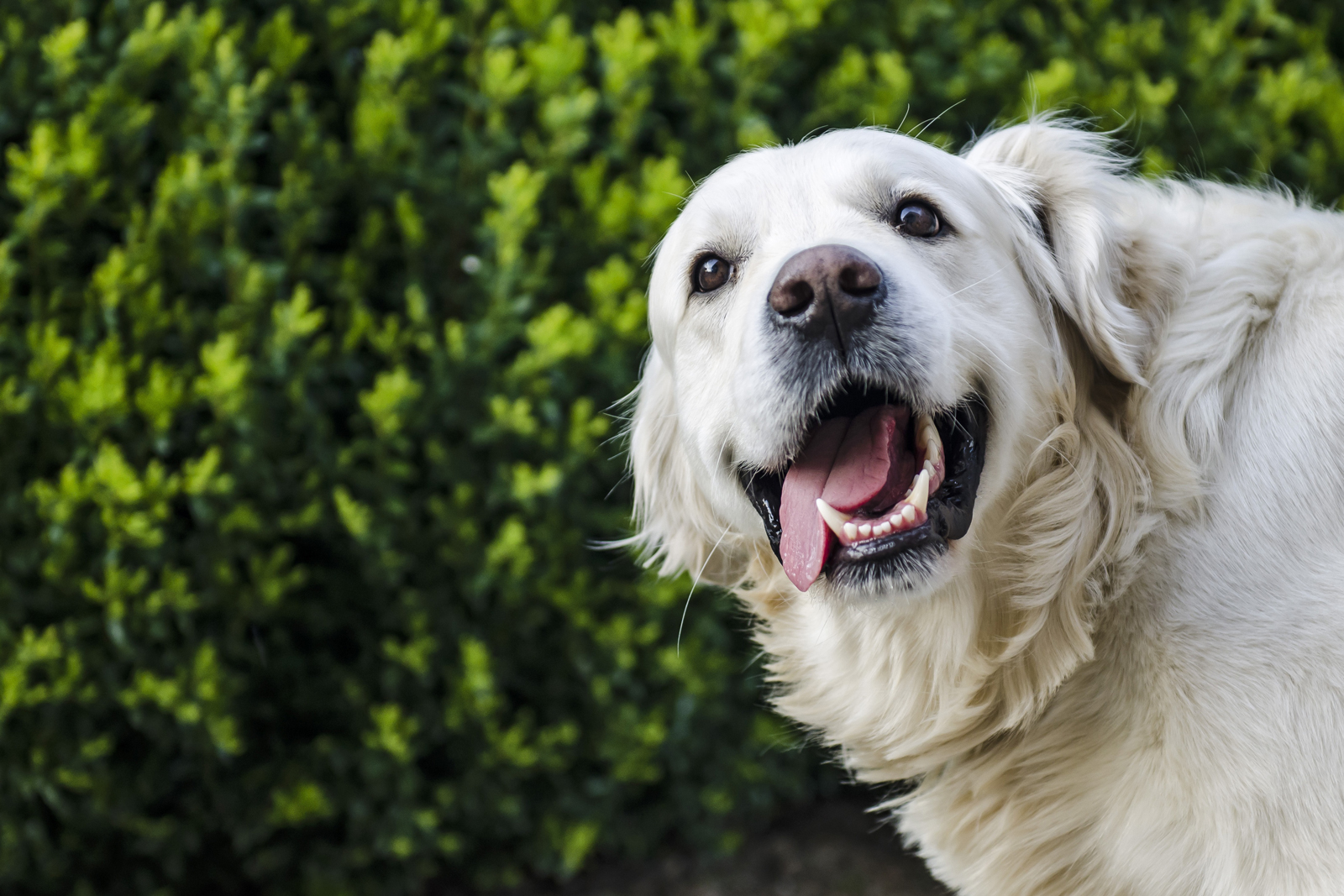
Canines are fun and affectionate furballs. They’re endlessly rewarding pets, giving their owners unconditional love and affection.
Let’s take a look at some commonly asked canine questions:
What vaccinations does my dog need?
Puppies normally start their course of vaccinations at 6-9 weeks of age, reaching completion by the time they reach roughly 11-13 weeks of age – until this point, they should not go outside.
They’ll receive various initial injections, followed by periodic boosters administered throughout your pup’s life.
According to The Blue Cross, your pooch’s vaccinations will safeguard against the following:
- Leptospirosis
- Canine Parainfluenza
- Adenovirus 1 and 2
- Parvovirus
- Canine Distemper
- Rabies
- Kennel Cough
Why does my dog eat poop?
As horrifying as it may seem, many pooches are partial to poop – they’ll sample everything from horse manure to other dogs’ doo-doo.
While it’s commonly believed that this unpalatable habit is linked to a nutritional deficiency, this is a misconception.
Coprophagia, or poop-eating, occurs because dogs like the taste – it’s as simple as that!
Poop eating can be bad for your dog’s health.
While you can teach them the ‘leave’ cue and attempt to steer clear of other animals’ faeces, you can’t totally eradicate the risk, so make sure your pooch has quality pet insurance.
How often should I take my dog to the vet?
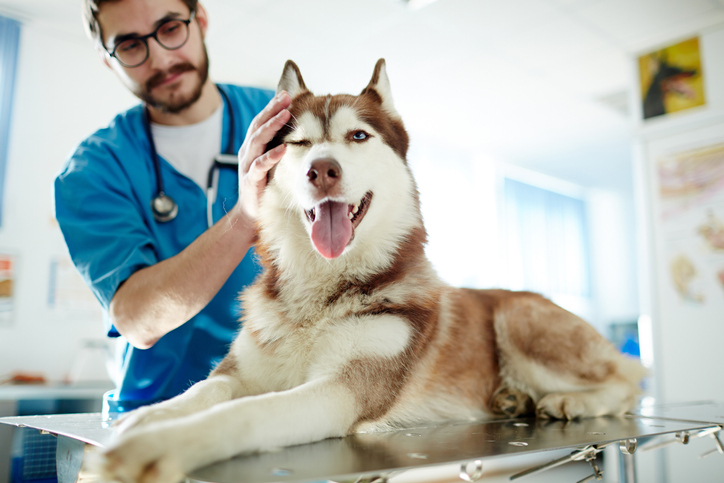
A young pup needs a vet check-up at six weeks of age, so they can begin their course of vaccinations.
They’ll need to visit every couple of weeks, until the course is finished, at around the four-month mark, following up with a check-up when they reach six months of age.
Your adult pooch will need a veterinary check-up once annually, at a minimum.
Older dogs should be assessed by a vet every six months, and geriatric canines should be checked every three months, due to the increased fragility of their health.
Why is my dog itching so much?
As with many doggy habits, frequent itching may be a cause for concern, but it could just as easily be a symptom of boredom.
If your pup is excessively itching, first check them for fleas. Mites, lice and ticks are also drawn to dogs, so if you’re concerned about an infestation, zip across to the vet right away.
Scratching could also be linked to infections such as ringworm or yeast. Skin disorders, dry skin or allergies are other potential triggers.
It’s always best to consult a vet when in doubt, so you can help ease your pet’s distress quickly and effectively.
What food should I feed my dog?
The Kennel Club recommends maintaining a consistent diet for your dog, as variety can cause digestion problems. Always ensure your dog has fresh water available, too.
You can choose between a range of diets with varying degrees of quality: completely dry, semi-moist, home-made or tinned.
A good diet will be digested with ease, producing firm, formed brown stools.
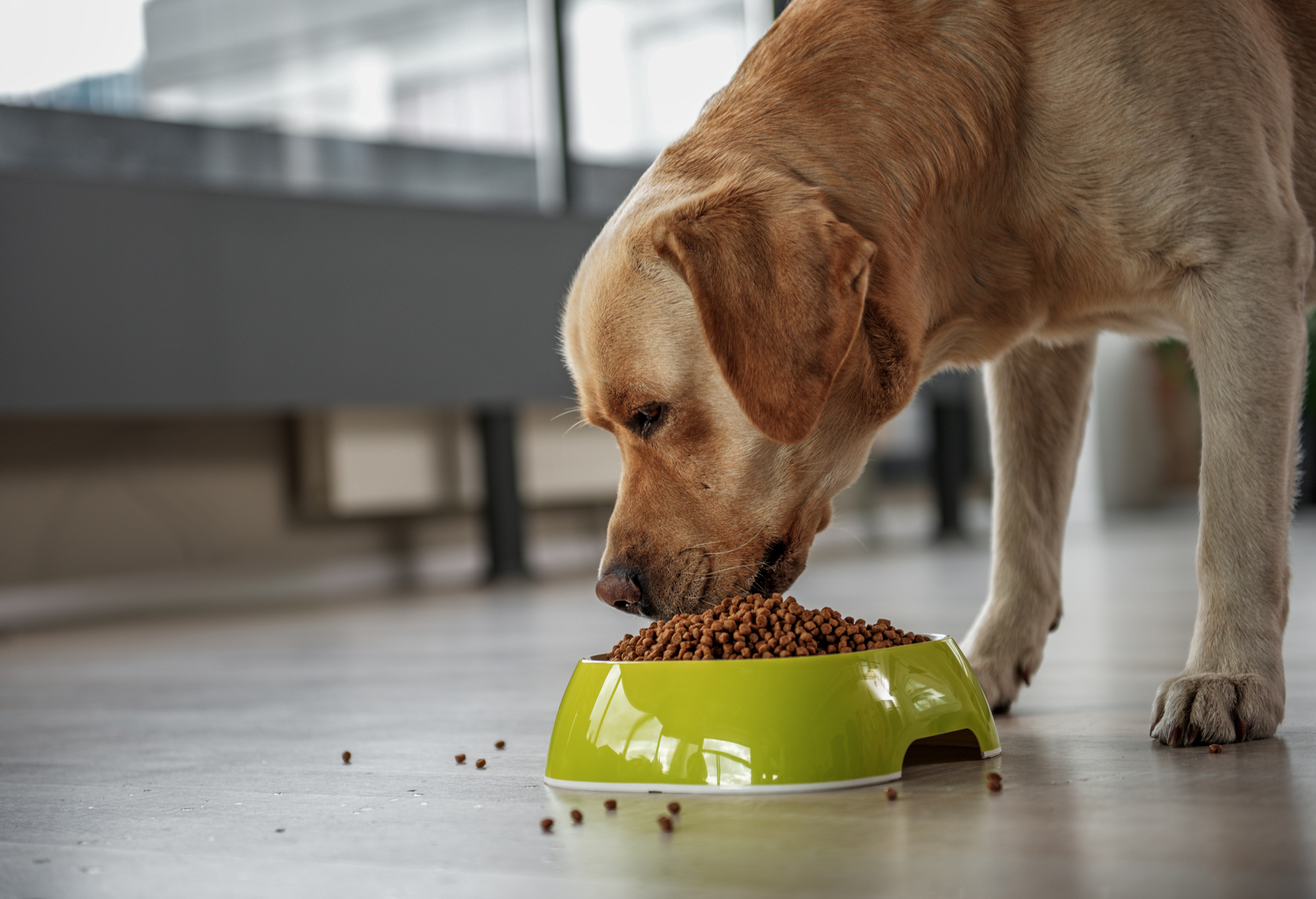
When should I consider getting my dog spayed or neutered?
Spaying or neutering your pooch is a personal choice. It’s always best to consult a vet, as the ideal age can vary from breed to breed.
The procedure can be carried out at a young age, but your vet may recommend waiting until after a female pup’s first season.
They also might recommend holding off until a male pooch has matured. For further info, read our blog insurance on whether pet insurance covers spaying.
Why does my dog scoot?
It’s never a welcome sight, seeing your pup drag its bottom across your pristine carpet. Common in medium to small-sized pooches, it’s mainly triggered by infected or impacted anal sacs.
The sacs should empty often, alongside regular bowel movements. When they don’t, issues can arise.
Other causes of scooting could be a perianal tumour, or irritation caused by matted hair, parasites or diarrhoea.
Always take a scooting pooch to the vet, to safeguard against more serious medical issues.
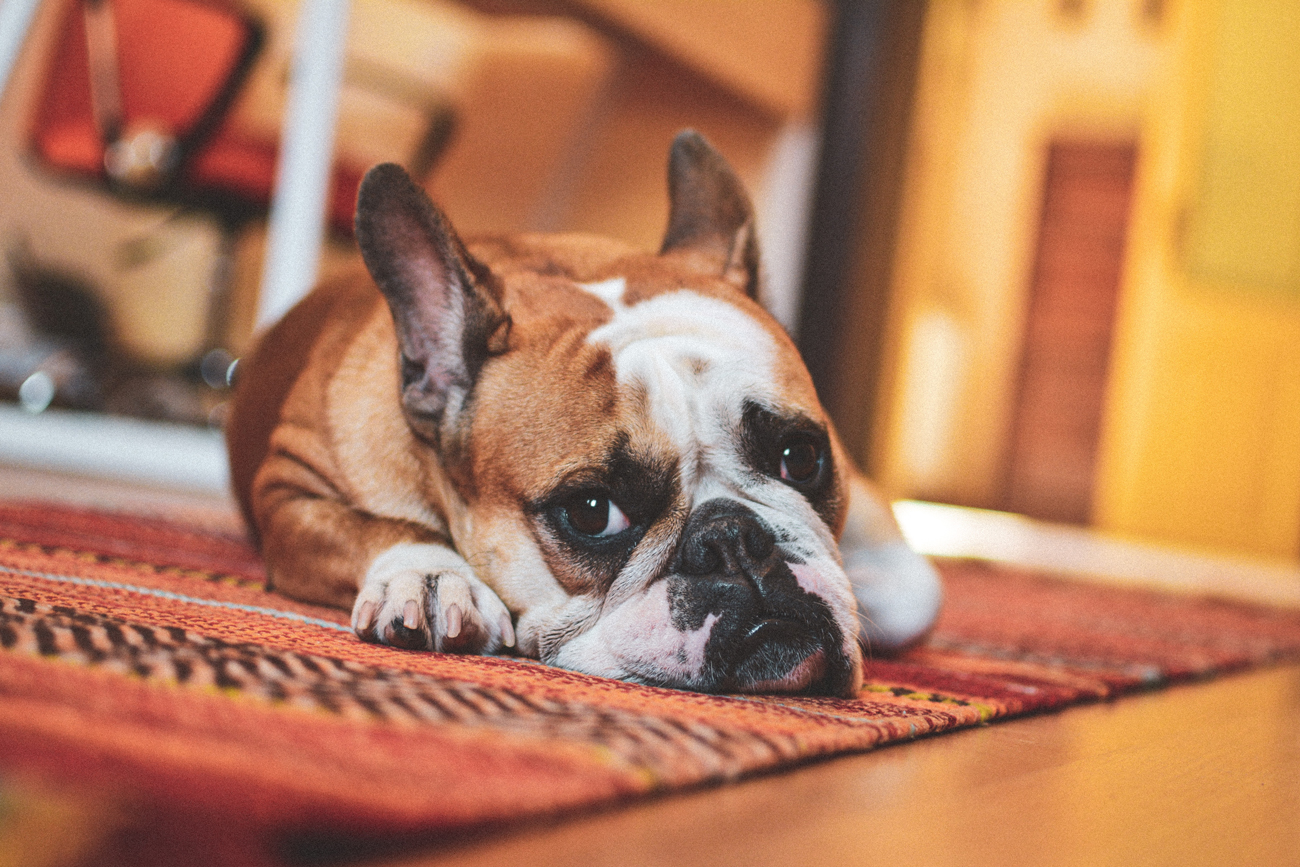
My dog has a lump – should I be worried?
The sudden discovery of a lump on your beloved pooch can be frightening.
It’s important to remember that a lump doesn’t necessarily spell trouble – in fact, many turn out to be fatty lumps, known as lipomas, which are harmless.
Lipomas are benign lumps that begin life as fat cells housed in bodily tissue – they don’t tend to cause pooches any pain.
They’re more frequent in middle-aged and elderly canines, and often don’t call for removal.
If you find a lump on your dog, it’s always best to play it safe and consult a vet.
You can never rule out more serious conditions, so your vet may extract a test sample.
It’s essential to protect your pooch with quality pet insurance, as in the event of serious illness, the vet bills quickly rack up.
Why does my pooch eat grass?
Many owners become concerned when they spot their canine grazing on grass, putting it down to illness or nutritional deficiencies.
The Blue Cross states that, in fact, neither of these theories are proven.
It’s more likely that your dog views grass as a tasty snack, especially when it’s nice and fresh.
Ensure the grass has not been treated with toxic pesticides, and check your pooch is protected against lungworm, too.
You needn’t worry about grazing, unless it becomes excessive. If your dog is eating grass but shunning other food, seems unwell or is vomiting often, it’s always best to consult a vet.
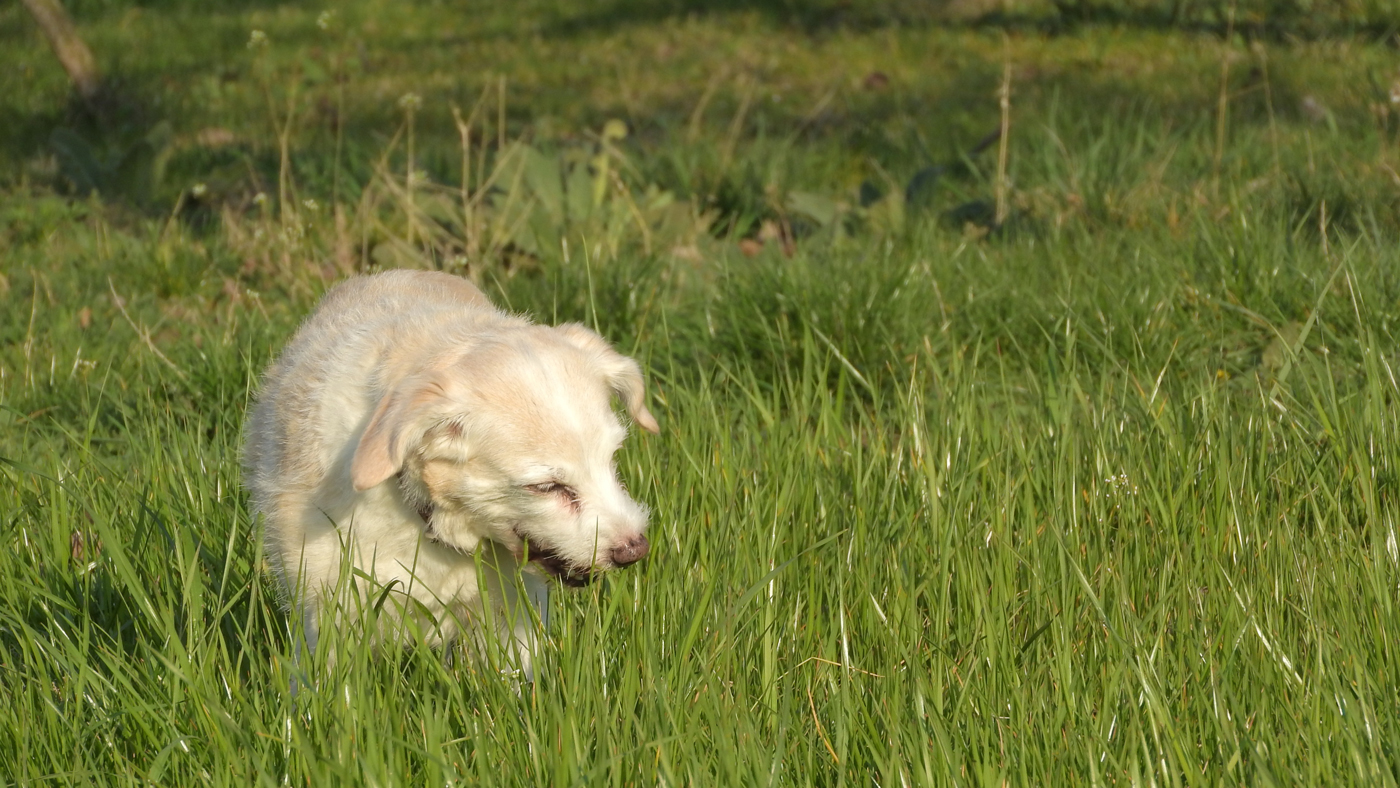
Protecting your friend with pet insurance
It’s important to be vigilant and safeguard your pet’s health from day one.
Animals can’t communicate with us verbally, so learning what is and isn’t normal can be a great help when caring for your furry pal.
You can be the best owner in the world, but, sadly, you can’t rule out risks such as accidents or serious illnesses.
Protecting your beloved friend with reliable pet insurance is a top priority, and will give you peace of mind should they require treatment – veterinary services don’t come cheap.
With Purely Pets, your pet will be in safe hands. Voted Best Pet Insurance Provider of 2019 at the Insurance Choice Awards, we’ll help you find quality cover to suit your pet and your budget.
Don’t wait, get a quote for pet insurance today.
Helpful Pages
Recent Posts
Pet Insurance Quote
- 98% claims paid *
- Claims paid directly to vets
- 24/7 vet video consultations
- Interest free monthly payments
